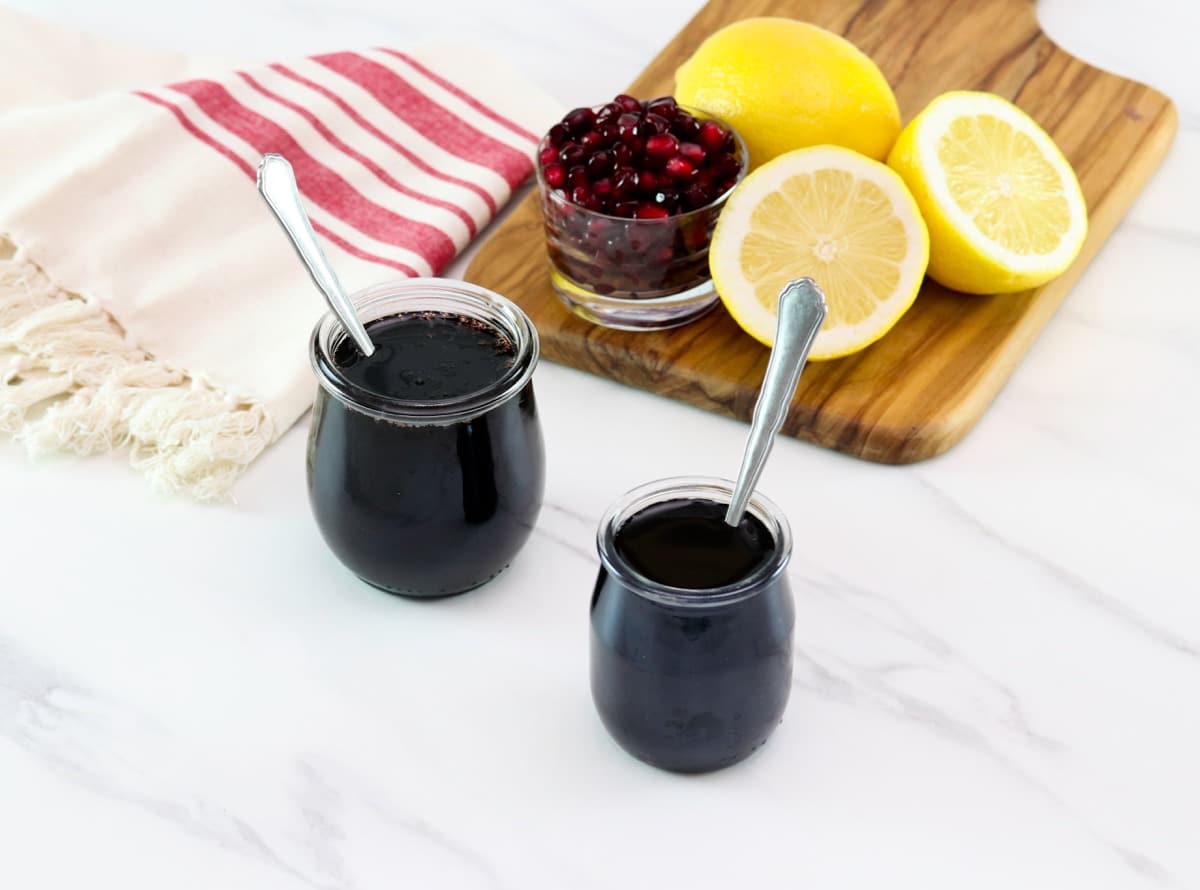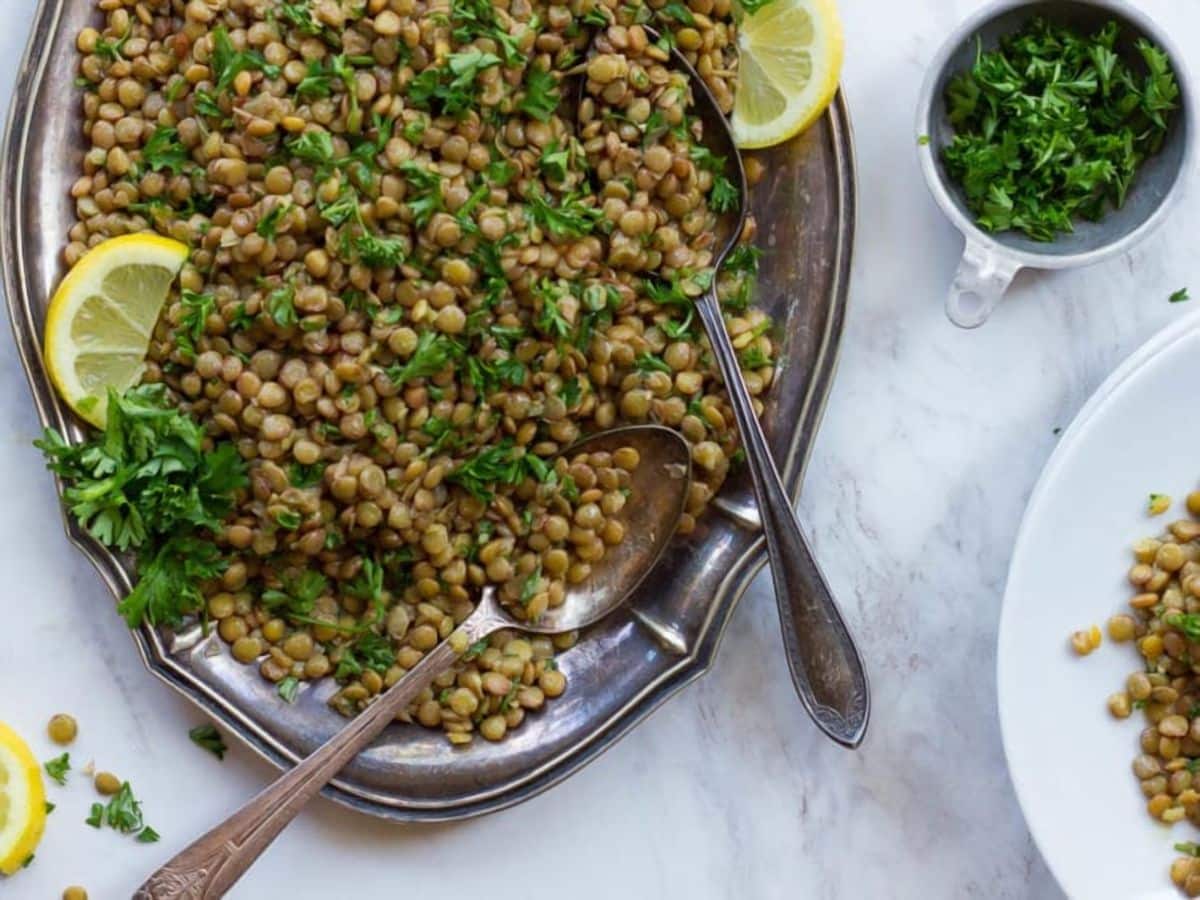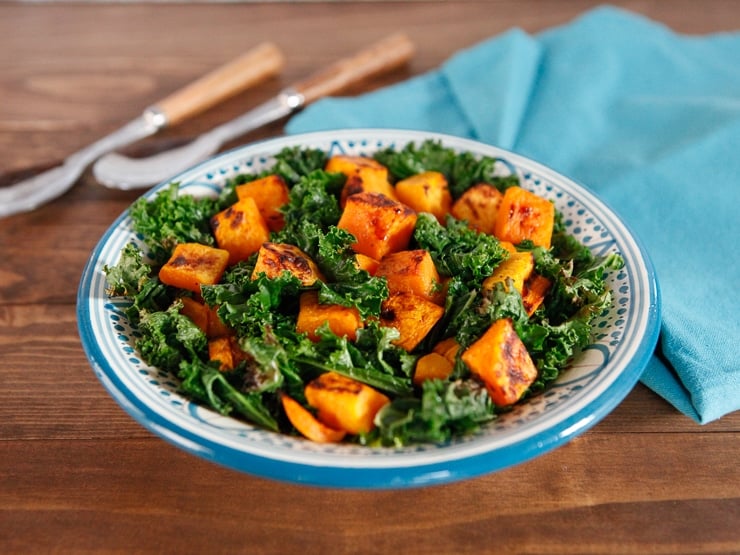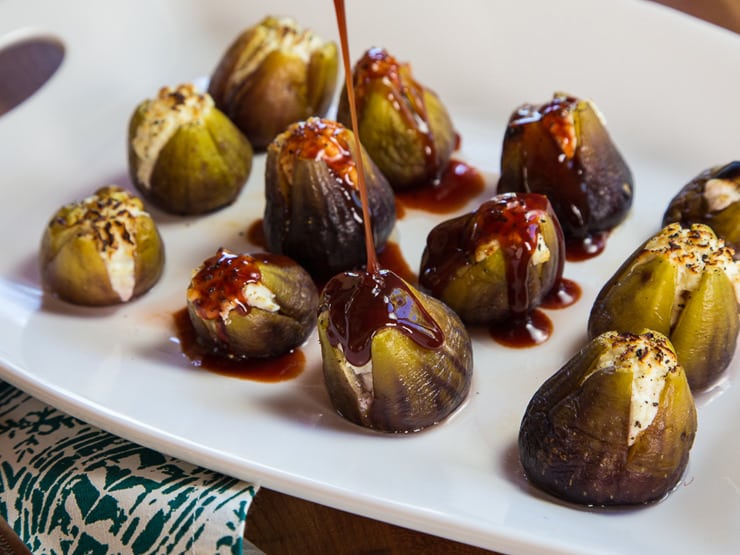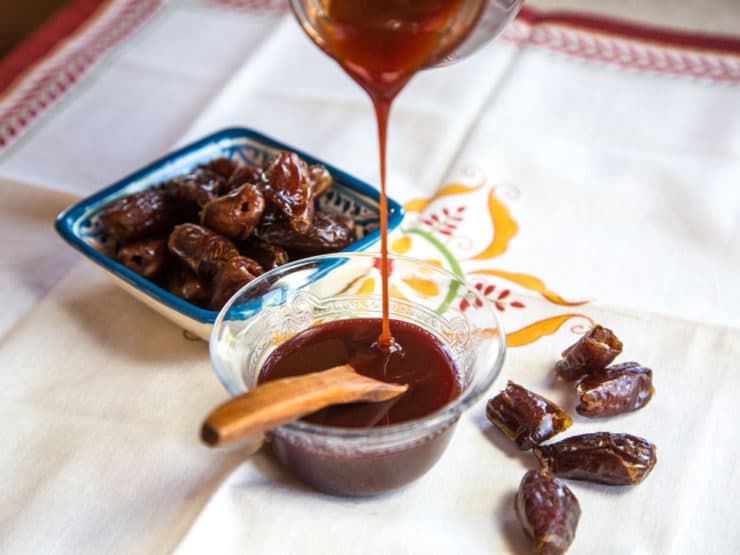Tu B’Shevat
This collection of Tu B’shevat recipes includes the seven species. As part of the Tu B’shevat seder it is customary to eat from shiv’at ha’minim (seven species endemic to the Land of Israel): wheat, barley, grapes, figs, pomegranates, olives, dates. Some customs partly mirror the Passover seder and involve eating biblical foods native to the Holy Land and drinking four cups of wine.
Beyond that, there are many possible variations for preparing a Tu B’shevat meal, usually incorporating dried fruit and nuts, and one can be creative in deciding how to plan the menu.
Tu B’shevat gets its name from the date on which the holiday occurs, the 15th of the month of Shevat. A minor Jewish holiday, it is often referred to as the new year (or “birthday”) of the trees. The holiday originated in the Talmud, and was based on the date chosen for calculating the agricultural cycle of taking tithes from the produce of the trees, which were brought as first-fruit offerings to the Temple in Jerusalem.




